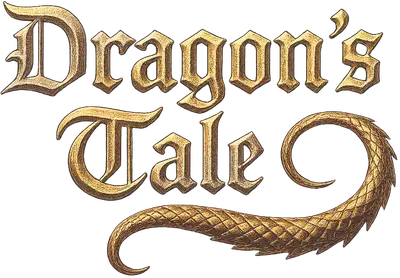Issue 9
April 2025
Theme Machine
Dragon's Tale
Can you help save the Kingdom, and find the prompt for your next epic fantasy?

You are about to embark on a journey of epic proportions. Choose your path wisely, for the fate of the kingdom rests in your hands.
Research Corner
How history and science influence writing
Have you ever read a book that stays with you? That you keep coming back to again and again? That despite the fantastical characters and unbelievable antics, they just felt… real?
For me, it was The Immortals series by Tamora Pierce. I started reading it when I was like 11 or 12, and even now, 20 years later, I keep coming back to it. Shapeshifting, international politics, conservation, divine parentage… it’s a beautiful mix of everything I love about fantasy and I’m craving to get my books out again.
Now, as a writer, I look back, trying to work out what it was I loved so much about the series, and the world itself. And I think a large part of it was how real it felt. How grounded. How both the shapeshifting and the international politics felt real.
This month, I’m going to explore three important ways that you can ground your fantasy worlds in reality:
- Using historical events as blueprints for your fantasy conflicts (cough Game of Thrones)
- Borrowing from cultural traditions and mythology to build authentic societies, magic structures, and magical creatures
- Applying scientific principles to create believable (yet fantastical) ecosystems.
Help for Writers
Welcome all forms of inspiration
Storytelling has been with us in some form or another since the beginning of time. Everything we write about builds on what came before it. High School Musical—doesn’t it feel similar to Grease? West Side Story? Well, it’s fabulously similar to Romeo & Juliet. Bridget Jones’s Diary? I’ll leave that one for you to guess.
When we incorporate familiar story elements, we’re actually giving readers a comfortable entry point. Readers instantly recognize patterns they know and love, which creates an immediate connection. This familiarity doesn’t make your story predictable—it creates a foundation of trust that allows you to take readers on new and unexpected journeys. Think about how successful genre fiction works: readers come for the familiar conventions but stay for your unique execution and perspective.
Little Red Riding Hood started as a simple medieval warning to children about staying on their path. Today versions play with the wolf’s symbolism, turning the story into everything from supernatural thrillers to nuanced examinations of trust and deception.
I’m exploring this myself with The Wolf in Red, the serial I’m developing during our livestreams. It takes recognizable elements from the classic tale but focuses on contemporary themes: the consequences when authorities persecute animals (and certain groups of people) without understanding the broader impact.
How are you inspired by folklore and fairy tales? Or perhaps it’s epic poetry of the past that lights up your creativity? We’re curious about the foundations you’re building upon.
Creative Sparks
Prompts with a twist
Some of the best fantasy novels take a concept—whether from literature, folklore or mythology—and give them a unique twist. Why not try writing a short story based on one of the following ideas?
- Rapunzel is not trapped. She is a siren luring men to her lair
- Snow White’s dwarfs aren’t miners—they’re grave robbers who use her as their fence
- Prometheus didn’t give fire to humans; he infected them with a burning curse that’s slowly consuming humanity
- The terracotta army isn’t meant to protect the emperor in the afterlife—they’re keeping him imprisoned there
- The dreamcatcher doesn’t catch bad dreams, it prevents our dreams from escaping and becoming real
